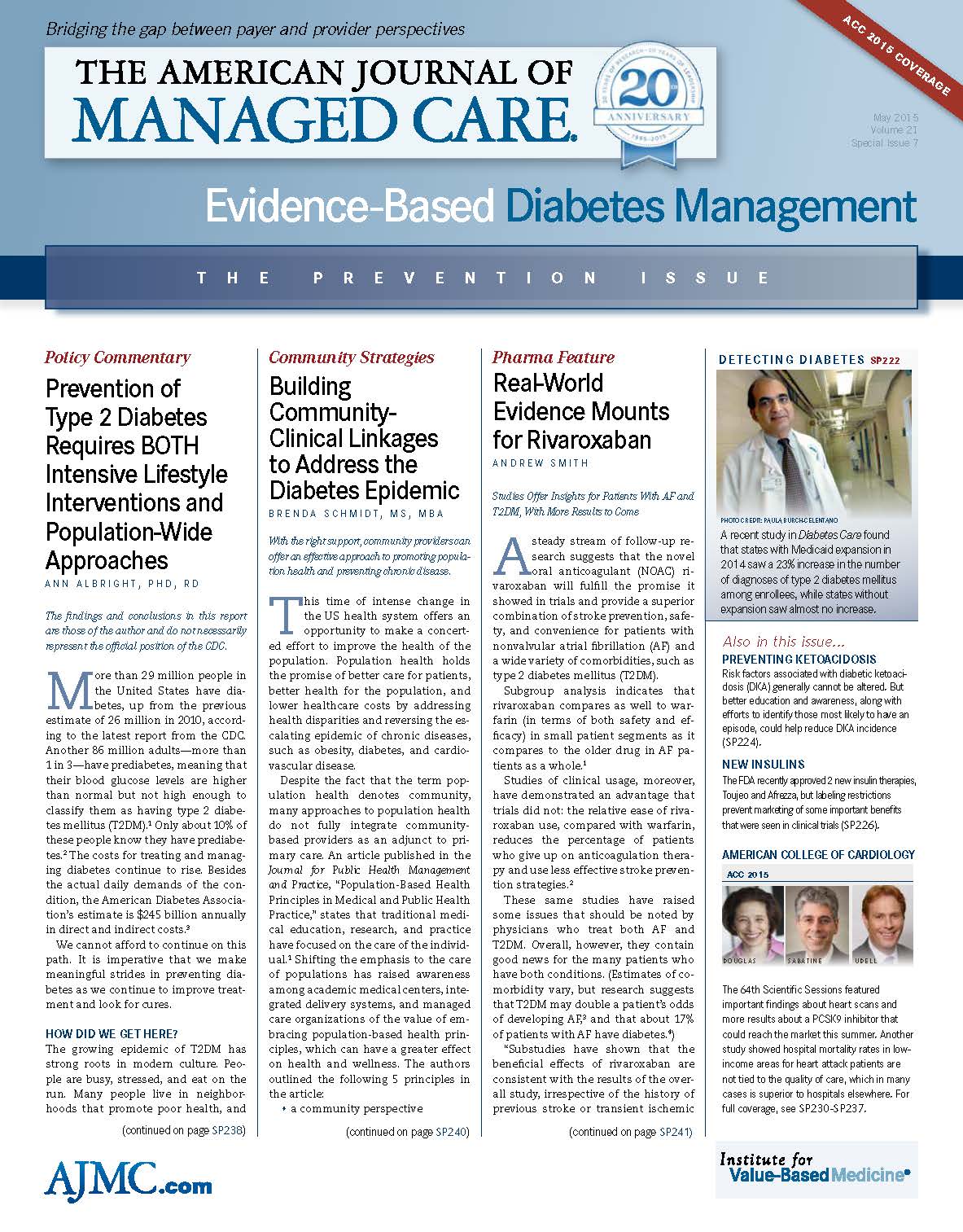- Center on Health Equity & Access
- Clinical
- Health Care Cost
- Health Care Delivery
- Insurance
- Policy
- Technology
- Value-Based Care
JAMA Study Reports Potential for Using Insulin to Prevent T1DM in High-Risk Children
High doses of oral insulin given to children with a genetic risk of developing type 1 dia-betes mellitus (T1DM) produced immune responses that suggest this therapy could be a way to prevent the disease.
Results of the pilot study were report-ed in the April 21, 2015, issue of JAMA, along with an editorial calling for a phase 3 trial based on the findings. The editorial said future studies should include children even younger than the small group of 2-to-7-year-olds who par-ticipated in the pilot, called Prevention Trial-Type 1 (Pre-POINT).1,2
T1DM can be detected before children develop symptoms, by the presence of islet autoantibodies. The thinking behind preventive therapy, therefore, is that triggering an immune response with insulin before antibodies appear can create a protective effect, keeping T1DM at bay. A child whose parents or older siblings have the disease would be among those considered at high genetic risk for T1DM and thus a target for preventive therapy.
Ezio Bonifacio, PhD, of the DFG Cen-ter for Regenerative Therapies Dresden, Technische Universitat Dresden, Germany, and colleagues randomly assigned genetically at-risk children who were autoantibody negative to receive oral insulin at varying doses or to receive a placebo, once a day for 3 to 18 months. Fifteen children receive an in-sulin dose and 10 received the placebo. The study took place between 2009 and 2013 in Germany, Austria, and the United States
.1
Immune responses were as follows:
• In placebo-treated children, 2 of 10 (20%)
• In those treated with 2.5 mg insu-lin, 1 of 6 (16.7%)
• In those treated with 7.5 mg, 1 of 6 (16.7%)
• In those treated with 22.5 mg, 2 of 6 (33.3%)
• In those treated with 67.5 mg, 5 of 6 (83.3 %).1
There was no difference in the number of adverse events between the insu-lin or placebo groups, and no hypoglycemia occurred.
“The Pre-POINT pilot study demonstrated that daily oral administration of 67.5 mg of insulin to genetically at-risk healthy children without signs of islet autoimmunity resulted in an immune response without hypoglycemia. The immune response observed in insulin-treated children did not display the features typically associated with type 1 diabetes,” the authors wrote.
In the accompanying editorial, Jay S. Skyler, MD, noted that the pilot study involved children at the greatest genetic risk, and a more definitive study would need to capture those at risk levels not quite as high. He also discussed whether children under age 2 years could take part, since “Peak incidence of islet autoantibodies occurs between 6 months and 2 years.”2
Despite hurdles such as how to administer an oral insulin, researchers would want to include children before seroconversion, and thus would need to include children younger than 12 months. It’s now possible, Skyler wrote, to identify those children who are at risk of developing T1DM.
“What’s missing are interventions to arrest this process prior to irreversible damage to the pancreatic beta cell,” and the Pre-POINT trial created evidence for a clinical trial to develop such an intervention, Skyler wrote.2
References
1. Bonifacio E, Ziegler AG, Klingensmith G, et al. Effects of high-dose oral insulin on immune responses in children at high risk for type 1 diabetes: the Pre-POINT randomized clinical trial [pub-lished online April 21, 2015]. JAMA. doi:10.1001/ jama.2015.2928.
2. Sklyer JS. Toward primary prevention of type 1 diabetes [published online April 21, 2015]. JAMA. doi:10.1001/jama.2015.2054


